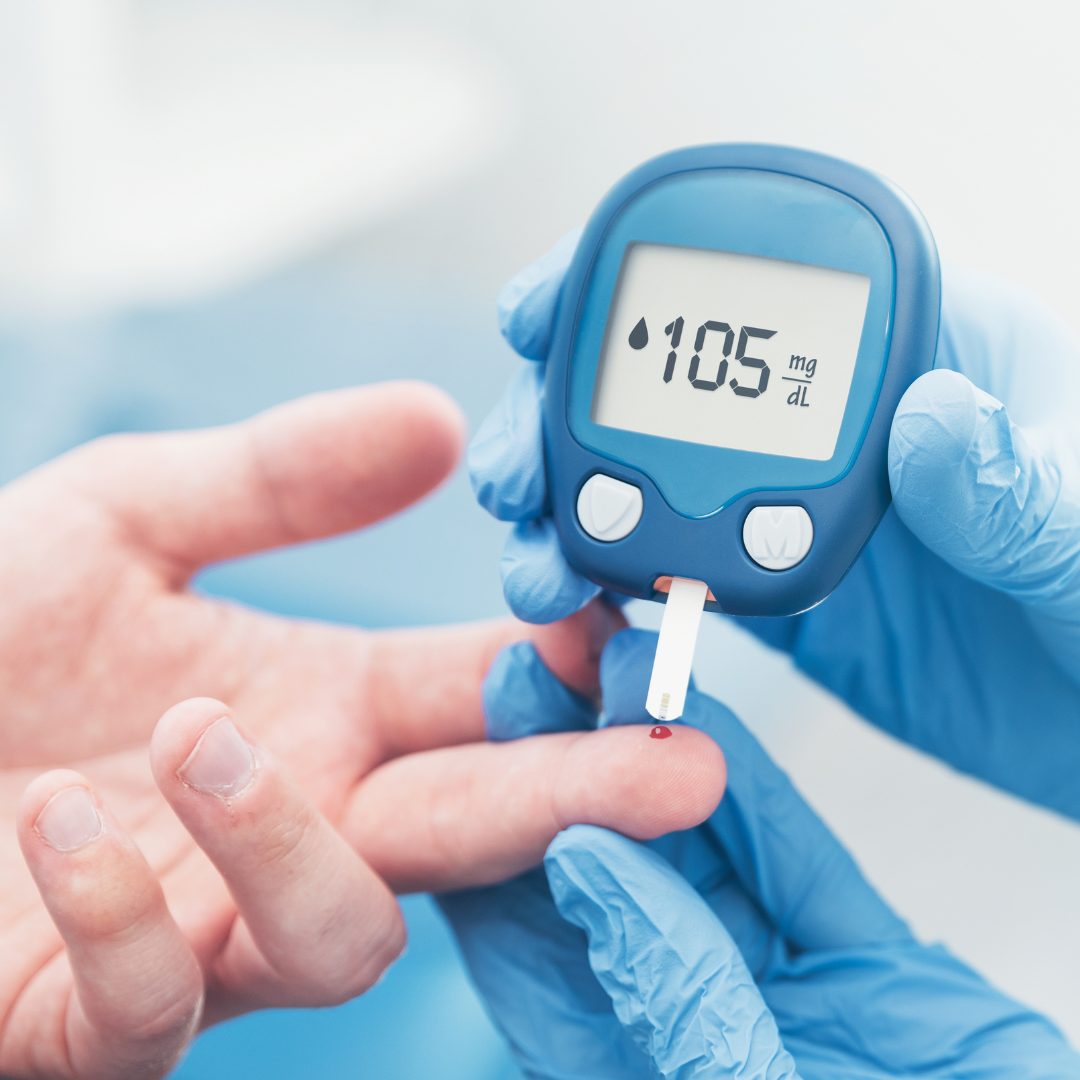You might have encountered social media posts discrediting the role of carbohydrates in a balanced diet. They tell you that carbs are to be avoided at all costs, possibly due to the influence of diets like Atkins. But are these claims as solid as they appear?
Let’s analyze several popular claims about carbs, their pros and cons, and how they can be instrumental in your weight loss journey.
Claim: Carbohydrates cause diabetes
Carbohydrates, in excess, can certainly play a role in diabetes, but this is a bit shortsighted. Carbohydrates are not a solo actor in this problem. They are as guilty of causing diabetes as a passenger is guilty of causing a car accident. They’re there, and maybe had a bit of an influence, but they weren’t likely solely responsible for the crash.
Type 2 diabetes is ultimately developed through dysfunction in the pancreas’ ability to dish out insulin, or the cells’ ability to take in blood sugar (Galicia-Garcia et al., 2020). Both alone or in conjunction can lead to elevated blood sugar levels. It has also been proposed that fat accumulation within the cells plays a role in insulin resistance, further demonstrating carbohydrates are not the sole actor.

Excess calories, body fat, and inactivity are the largest contributors to the two. Carbohydrates, and sugar, demonstrate a reflection of the disease rather than the culprit. Fortunately, when the goal is to lose body fat or build muscle the downstream negatives from high carbohydrate intakes are mitigated. Not to mention, those with diabetes who do resistance training see improvements in their ability to manage blood sugar even with no changes in normal carbohydrate intake (Gordon et al., 2009).
Takeaway: Carbs don’t give you diabetes and impair weight loss directly through metabolic dysfunction.
Claim: Carbohydrates cause obesity
While excess carbohydrates can lead to obesity, much like fat, they don’t directly make someone obese. Carbohydrates themselves do not get stored as fat; they need to be converted first. Carbohydrates are preferentially stored in the muscles, liver, and blood and are one of the primary fuels for the central nervous system. The body can make fat from carbohydrates, but it is not the first choice, and it takes some extra energy to complete the process.
Think of using your oven to heat your house. Your oven is designed to heat food and is probably best at serving this purpose. Could you use it to heat your house? Probably, but there are more effective ways to heat the house, and using the oven would likely waste energy.
If you are consistently eating more calories than you need over time, you are certainly going to gain weight, regardless of where the calories are coming from. Fats, however, are far more likely to be stored, than carbohydrates, as body fat (Horton et al., 1995).
Takeaway: Carbs don’t make you obese and make weight loss harder. In some cases, they can make it easier! They can improve performance in exercise and require extra energy to be converted into fat.
Claim: There are Good Carbs and Bad Carbs
These claims are directly related to the level of processing a food has. Generally, when a food has a higher degree of processing, it is considered worse off for our health. The reality is that this subjugates itself to the naturalistic fallacy. Assuming that things that aren’t processed are better than things that are processed.
While you can certainly find examples of foods that are not ideal for health that fit within the “bad” category that are heavily processed, you can do the same with foods that are found in nature. Bad and good are relative to both an individual and the circumstances.
Context is important. Good is having a sugary drink during an endurance event where you aim to prevent massive performance declines, and bad is having a massive bowl of quinoa. While the inverse would be believed to be true, within this context, one will fuel the performance, and the other may lead to stomach cramps and a decline in performance.

Refined grains are claimed to have their nutritional value pulled from them, which may carry some merit, but a lot of products and companies also fortify their foods which can, at times, prevent nutritional deficiencies in people who would otherwise find themselves lacking nutritional value under a “bad” carbohydrate-rich diet. It is, again, important to consider the circumstances within the context of when or why a specific food is being eaten.
On average, consume plenty of fruits, vegetables, and whole grains. Don’t fear the sugary cereals, sugary snacks, desserts, etc. Enjoy them in moderation, and certainly take advantage of them around your training.
Takeaway: “Bad” carbs don’t directly lead to impairment in weight loss. Only consistent overconsumption will. “Bad” carbs can enhance performance and may be helpful in aiding fat loss as a result.
Claim: Carbohydrates are addictive
The claim that carbohydrates, or more specifically sugar, is addictive is often related to their neurochemical relationship when eaten. This relationship is tied to the dopamine pathway. The World Health Organization defines addictive behavior as the repetitive consumption of rewarding behaviors that impair personal functions (World Health Organization, n.d.).
For instance, you can view gambling as addictive. In some cases, even exercise can form some addictive behavior. The problem with assessing whether sugar consumption forms addictive behavior is the lack of clearly defined criteria. It is a bit ambiguous.
It is certainly possible someone may find themselves with addictive-like tendencies with sugar consumption, but it is also clear that not many people will risk their houses, lives, and health all for the sake of a glazed donut like someone may do to win big in Vegas. So there is a distinct difference between the level of addiction to gambling and sugar consumption. Both may play on similar reward pathways, but that does not mean it is a clear addiction.
It’s also important to remember that what most people think of as addictive sugary foods are pretty heavy in both sugar and fat. Even for those who consider themselves addicted to sugar, try making a glazed donut with all the sugar you want but zero fat, and see how addictive they are.
While there may be some merit to this claim through the reward pathways intrinsic in our bodies, it is unlikely the level of addiction carries to that of substance abuse or other reckless behaviors, and cessation is thus equally easier to manage.
Takeaway: Carbs do not directly lead to overconsumption and failure to lose weight; overconsuming them does. If you tend to eat a ton of sugary snacks, feel free to employ strategies to reduce that behavior, but equating them with an addiction is misleading.
Claim: Carbohydrates Cause Inflammation
Context is important, and the data is a little unclear. For most people, it is likely not of any concern within the right context. The immune system is incredibly complex, and while it is responsible for dealing with and managing viruses and bacteria that are foreign to the body, it is also responsible for regulating damage within the body.
Exercise, for instance, is a massive contributor to an upregulation in the immune response. Exercise causes inflammation and immune responses, and so within this context, it is important to consider what this inflammation is and whether it is a problem.
Inflammation is an essential part of the body's immune response, and it's not inherently bad. A spike in inflammatory markers after eating carbs means very little when considering a short-lived spike. If short-lived spikes in inflammation were a problem, we would advocate for people to stop exercising immediately.
There is no need to be concerned with inflammation from carbohydrate consumption. There are plenty of healthy vegans and vegetarians walking around who are quite healthy and have no inflammation problems.
Takeaway: Inflammation is a part of the body's natural responses to stress. Transient changes in inflammatory markers likely lead to little meaningful changes in bodily function and do not impair health or fat loss ability.
How carbs can help with your goals:
Plenty of misconceptions surround the use of carbohydrates, especially around their ability to help you lose body fat. Rarely do people take a balanced perspective and discuss all the positives they provide for the body.
They can bring tons of crucial vitamins and minerals in the form of fruits, vegetables, whole grains, and fortified snacks, and they can improve your performance in training, leading to better long-term outcomes for your training and body composition-related goals. They can help support the resupplying of glycogen in the muscles, fueling performance, and leading to more muscle growth over time.
Don’t fear carbohydrates. Embrace them for what they provide and can do for the body! At RP, we consider them essential to any diet, and our RP Diet App will build a diet for you with an optimal carb intake for your lifestyle and activity levels.
References:
Galicia-Garcia, U., Benito-Vicente, A., Jebari, S., Larrea-Sebal, A., Siddiqi, H., Uribe, K. B., Ostolaza, H., & Martín, C. (2020). Pathophysiology of type 2 diabetes mellitus. International Journal of Molecular Sciences, 21(17), 6275. https://doi.org/10.3390/ijms21176275
Gordon, B. A., Benson, A. C., Bird, S. R., & Fraser, S. F. (2009). Resistance training improves metabolic health in type 2 diabetes: A systematic review. Diabetes Research and Clinical Practice, 83(2), 157–175. https://doi.org/10.1016/j.diabres.2008.11.024
Horton, T., Drougas, H., Brachey, A., Reed, G., Peters, J., & Hill, J. (1995). Fat and carbohydrate overfeeding in humans: Different effects on Energy Storage. The American Journal of Clinical Nutrition, 62(1), 19–29. https://doi.org/10.1093/ajcn/62.1.19
World Health Organization. (n.d.). Addictive behaviour. World Health Organization. https://www.who.int/health-topics/addictive-behaviour#tab=tab_3